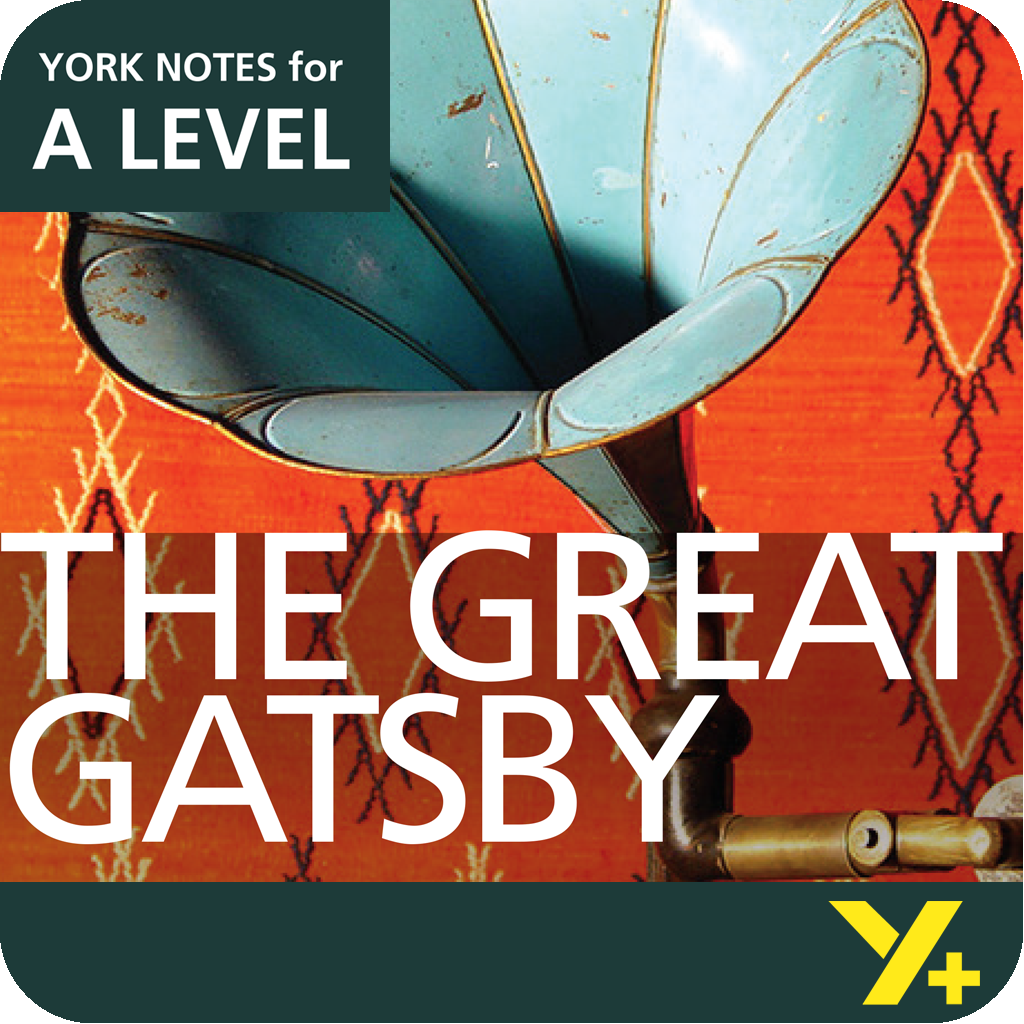Your Assessment
Read through the answer below and decide what level to give it. Use the Hints & Tips to help you make your assessment.
To improve the answer:
- Pay closer attention to the way meaning may be shaped by use of language and literary techniques. (AO2)
- Engage more purposefully with relevant historical and literary contexts. (AO3/AO4)
- Develop a more sophisticated understanding of how critical interpretations might shed light on key issues.
In order to say how true this statement is in relation to F. Scott Fitzgerald’s ‘The Great Gatsby’ it is first necessary to find out what Gatsby’s central weakness is. He is in love with Daisy, who is a married woman, but is that a weakness? Nick, who narrates the story, admires Gatsby’s ‘extraordinary gift for hope’, so from that angle his hope to win Daisy’s love is a strength rather than a weakness. The problem is that Gatsby has become a bootlegger in order to impress Daisy with his wealth and his glamorous lifestyle. We find out that he is a criminal and from that moment his downfall seems likely. But perhaps his downfall actually started when he first began to break the law.
A deeper problem is that he was born into a poor family, but that is not really his weakness. His unhappiness with the way his parents lived – ‘shiftless and unsuccessful farm people’ – might be seen as a strength. He wanted to improve his own life and Daisy represents the things he never knew at home, glamour and money. In real life, however, Daisy is not worthy of his love. She is cynical and superficial and a bad mother.
It is difficult to know what a happy conclusion to this story might have been. If Gatsby had his way, Daisy’s relationship with Tom would come to an end, and this would disrupt their lives and that of their daughter Pammy. Even though their marriage is not a particularly happy one, with Tom committing adultery, it could scarcely be a happy ending for Daisy to leave him for a man who has links with the criminal underworld.
If Gatsby was more adaptable and found another person to love the story would not exist, and Nick would not have the achievement of writing a book. The situation of Gatsby buying expensive shirts and foreign cars to impress someone who already has a very wealthy husband is potentially a tragic one. But the central weakness doesn’t seem to be part of his character. It is more the situation of trying to regain lost love.
Although it is tragic that Gatsby dies, shot by George Wilson, it is important to bear in mind that a few years earlier millions of men had died in the First World War. You could say that war was tragic, although you could not blame it on a character who had a central weakness. In light of all those men dying Gatsby’s death seems unimportant. Nick, who fought in the war, says that Gatsby represented ‘everything for which I had an unaffected scorn’. That suggests that the reason he is telling his story is not because he regards him as a tragic hero. He does also say that Gatsby turned out ok in the end, which is another way of looking at him, but still not tragic.
Gatsby also represents America, in that a lot of his qualities – having hope, starting his life again, rising from rags to riches – are also American qualities. Is Fitzgerald saying that America is a tragic country? He does show that sexism and racism exist in the novel, and there is a huge gap between the lifestyle of the well-off, on West and East Egg, and the poor hard-working people, such as Gatsby’s parents on their farm in the Middle West and the Wilsons, who live in a ‘valley of ashes’. When I read the novel, however, I did not think of Gatsby as America, because he seems too wrapped up in his own world, which is basically his obsession with Daisy.
Perhaps obsession is his central weakness. If only he could have moved on or changed the way he looked at things he might have lived. But when we see him at his parties he is aloof and doesn’t mix. He is there to be seen rather than to form meaningful relationships. Nick is really the only friend he has, apart from Wolfshiem who is a gangster and a bad influence, although Wolfshiem does say that Gatsby is the sort of man you would like to introduce to your mother and sister. On the other hand, by getting him together with Daisy, his second cousin once removed, Nick only makes matters worse.
In conclusion, to say that ‘The Great Gatsby’ is a tragic story because of Gatsby’s central weakness is too simple. It is a novel with a lot of layers of meaning and the vocabulary is patterned to create links between the chapters. But it seems to be the situations that Gatsby finds himself in at different times in his life that are the problem. He is not really to blame. According to the definition in the question I would say that ‘The Great Gatsby’ is not a tragedy, even though Gatsby’s death is tragic in an everyday sense of that word.
